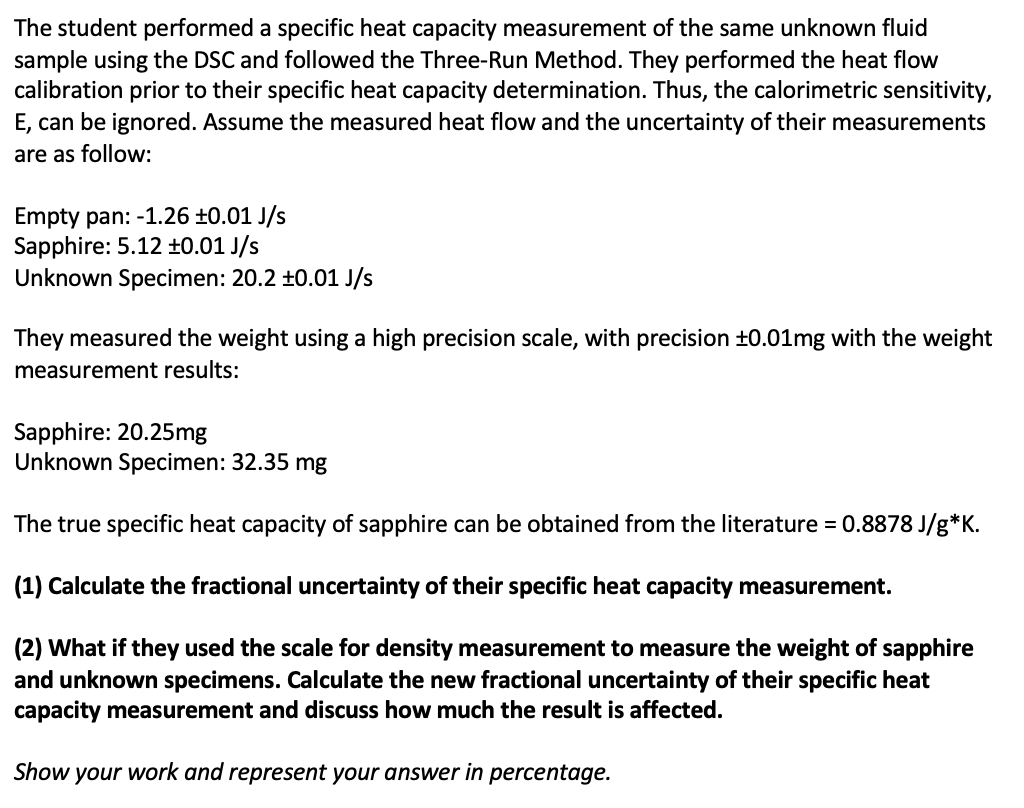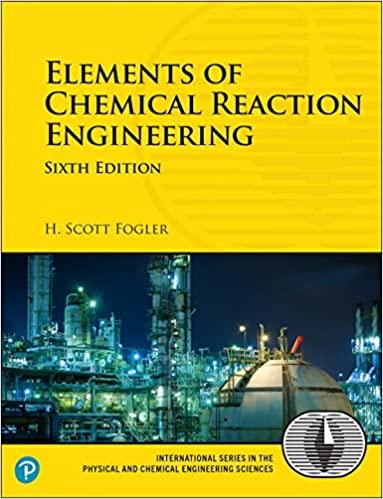The student performed a specific heat capacity measurement of the same unknown fluid sample using the DSC and followed the Three-Run Method. They performed

The student performed a specific heat capacity measurement of the same unknown fluid sample using the DSC and followed the Three-Run Method. They performed the heat flow calibration prior to their specific heat capacity determination. Thus, the calorimetric sensitivity, E, can be ignored. Assume the measured heat flow and the uncertainty of their measurements are as follow: Empty pan: -1.26 0.01 J/s Sapphire: 5.12 +0.01 J/s Unknown Specimen: 20.2 0.01 J/s They measured the weight using a high precision scale, with precision 0.01mg with the weight measurement results: Sapphire: 20.25mg Unknown Specimen: 32.35 mg The true specific heat capacity of sapphire can be obtained from the literature = 0.8878 J/g*K. (1) Calculate the fractional uncertainty of their specific heat capacity measurement. (2) What if they used the scale for density measurement to measure the weight of sapphire and unknown specimens. Calculate the new fractional uncertainty of their specific heat capacity measurement and discuss how much the result is affected. Show your work and represent your answer in percentage.
Step by Step Solution
There are 3 Steps involved in it
Step: 1
Solutions Step 1 a The density of the fluid sample is defined as the mass m of the sample divided by its volume V mV Using the given values we have 10g500mL 0200 gmL The fractional uncertainty in the ...
See step-by-step solutions with expert insights and AI powered tools for academic success
Step: 2

Step: 3

Ace Your Homework with AI
Get the answers you need in no time with our AI-driven, step-by-step assistance
Get Started


